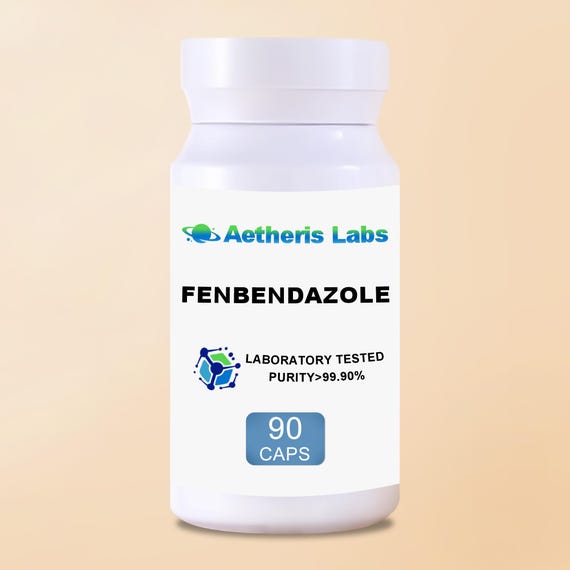How fenbendazole capsules Support in Controlling Common Parasitic Infections in Pets
Wiki Article
Comprehending the Perks and Uses of Fenbendazole in Vet Medication
Fenbendazole has established itself as a vital anthelmintic in veterinary medicine. Its ability to target numerous parasitical infections makes it a useful device for veterinarians. The medicine's system disrupts crucial cellular processes in parasites, causing efficient treatment end results. However, its safety profile ranges types, necessitating cautious factor to consider in its usage. Understanding these characteristics can clarify fenbendazole's broader ramifications in veterinary care and ongoing research study right into its potential beyond standard applicationsSystem of Activity of Fenbendazole

Usual Parasitical Infections Treated With Fenbendazole
A variety of parasitical infections are effectively treated with fenbendazole, making it a versatile alternative in vet medicine. This anthelmintic representative is specifically reliable against nematodes, including roundworms and hookworms, which commonly influence pets and pet cats. It is also utilized for the therapy of cestodes, such as tapeworms, offering a wide range of activity against both kinds of digestive bloodsuckers. Additionally, fenbendazole is beneficial in managing infections created by protozoa, especially Giardia, which can lead to stomach distress in pets. Its efficacy extends to treating particular lungworms in dogs and felines, dealing with breathing health problems connected to these parasites. Generally, fenbendazole's capacity to target several parasitical species makes it an important device in vet method, guaranteeing the wellness and health of animals influenced by these typical infections.Safety and Efficacy in Different Animal Types
The safety and efficacy of fenbendazole vary amongst various animal varieties, emphasizing the significance of species-specific factors to consider in veterinary medicine. In canines, fenbendazole is generally well-tolerated and reliable versus a variety of stomach parasites, consisting of roundworms and hookworms. For felines, nonetheless, its use is much less common and may require mindful application because of prospective adverse responses.In animals, such as cattle and lamb, fenbendazole shows effectiveness against numerous endoparasites, adding to improved health and efficiency. Nevertheless, the pharmacokinetics and potential side effects can differ noticeably between species, requiring cautious assessment by veterinarians.
Equines also respond positively to fenbendazole, particularly for dealing with strongyles and ascarids, though dosage and management paths should be tailored to their one-of-a-kind physiology. Comprehending these distinctions is crucial for enhancing therapy end results and ensuring pet welfare throughout varied varieties.
Administration and Dose Standards
Correct management and dose standards are vital for making best use of the healing impacts of fenbendazole while decreasing prospective adverse effects. The my response dose generally varies relying on the varieties being treated, the specific condition, and the solution of fenbendazole utilized. fenbendazole 222. For pet dogs and pet cats, a typical dose is 50 mg/kg body weight, provided once daily for 3 successive days, yet vets might readjust this based upon private health analysesIt is very important to administer fenbendazole with food to improve absorption and reduce intestinal distress. The drug is readily available in different kinds, consisting of granules and paste, enabling versatile management alternatives. Monitoring the animal's response during and after treatment is advisable to validate efficacy and safety. Furthermore, vet support is crucial to identify the proper period of therapy based upon the sort of parasitic infection being resolved, assuring optimal outcomes for the pet's health.
Future Viewpoints and Research Study on Fenbendazole
Study on fenbendazole proceeds to advance, concentrating on its prospective applications beyond typical antiparasitic usages. Current researches have discovered its performance in treating various forms of cancer cells, particularly in vet oncology. Initial data suggest that fenbendazole may prevent the growth of tumor cells and enhance the effects of other chemotherapeutic agents.Moreover, researchers are examining its duty in taking care of gastrointestinal problems in pets, highlighting its anti-inflammatory buildings. fenbendazole The adaptability of fenbendazole for various types questions about its safety profiles and optimal application regimens in varied populaces.
As rate of interest grows, there is a requirement for extensive clinical trials to establish evidence-based standards for these unique applications. Future research study may also examine the systems behind fenbendazole's impacts, possibly paving the way for ingenious therapeutic approaches in veterinary medicine. The recurring exploration of fenbendazole might greatly enhance treatment alternatives for various vet problems.

Frequently Asked Inquiries
Is Fenbendazole Safe for Pregnant Animals?
The safety and security of fenbendazole for pregnant animals stays uncertain. While some researches recommend minimal threat, veterinarians typically recommend care and frequently discourage its usage throughout pregnancy unless the benefits plainly surpass potential dangers.Can Fenbendazole Be Utilized in Animals?
Fenbendazole is generally used in livestock to treat numerous parasitical infections. 222 mg. Its efficiency against intestinal worms makes it a valuable anthelmintic, contributing to enhanced health and performance in animals raised for food and fiberWhat Are the Adverse Effects of Fenbendazole?

The negative effects of fenbendazole might consist of gastrointestinal disruptions, sleepiness, and allergic reactions. In unusual cases, more serious reactions might happen, requiring careful monitoring and appointment with a vet throughout therapy.
Exactly How Does Fenbendazole Compare to Other Dewormers?
Fenbendazole uses broad-spectrum effectiveness versus different parasites, often contrasting favorably to other dewormers. Its special device targets different life phases, making it effective, while typically presenting a favorable security profile compared to choices readily available on the marketplace.Can Fenbendazole Be Made Use Of for Dealing With Cancer in Animals?
The possibility of fenbendazole in dealing with cancer in pet dogs has actually garnered passion. Initial studies suggest it may inhibit cancer cells cell growth, however better research study is needed to validate its efficiency and safety visit site and security in vet oncology.Report this wiki page